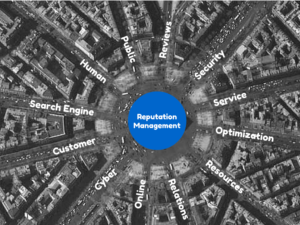![]() Review sites are here to stay, so we can’t put our heads in the sand and ignore them anymore. Sites exist to review all manner of businesses, and your business may have reviews that you have never seen – leaving the reputation of your business in the hands of the internet community without any input from the business owner or management. Review sites have strong authority with search engines, and online reputation management firms which have attempted to suppress review sites with positive content are losing the battle. Many online reputation pros have thrown in the towel and are now recommending engagement to change review site content, rather than trying to push them down in search results.
Review sites are here to stay, so we can’t put our heads in the sand and ignore them anymore. Sites exist to review all manner of businesses, and your business may have reviews that you have never seen – leaving the reputation of your business in the hands of the internet community without any input from the business owner or management. Review sites have strong authority with search engines, and online reputation management firms which have attempted to suppress review sites with positive content are losing the battle. Many online reputation pros have thrown in the towel and are now recommending engagement to change review site content, rather than trying to push them down in search results.
Claim
Claim or create your company page on the main review sites. Your company may not yet have a listing on a site like Yelp, but any customer or interested party could create one without your knowledge and certainly without your consent. Business owners should look at the main review sites and either claim their page if one has already been created or create their own listing – this will give you a small level of control. If you have a claimed page, then you can enable the tools provided to businesses by review sites, such as notifications of new reviews and the ability to respond to reviews. This is the single most important reason to claim your page, so that you will be notified of new reviews.Read More



